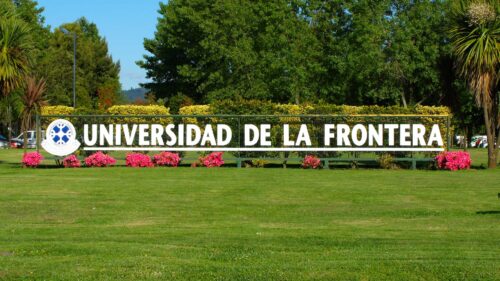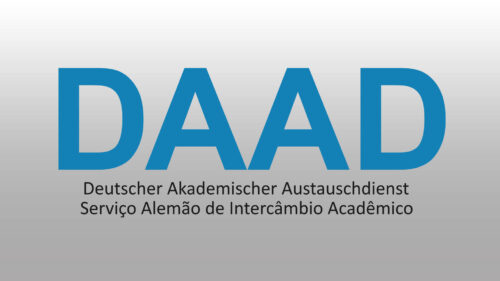Two FAPESP Schools – in the areas of Exact, Natural and Life Sciences and Humanities, Social Sciences and Arts – are open for enrollment until June 10 (photo: FAPESP Agency)
FAPESP Agency – In celebration of its 60th anniversary, FAPESP will promote meetings between postdoctoral fellows from the Foundation and from other development agencies in the country and researchers with outstanding performance in their respective areas of knowledge in Brazil and abroad. Applications are open until June 10.
Two "FAPESP Schools 60 Years” are scheduled for the month of August – one in the area of Exact, Natural and Life Sciences, to be held between the 7th and 10th, and another in the area of Humanities, Social Sciences and Arts, between the 21st and 24th.
“These meetings offer researchers in training an opportunity to interact with more experienced scientists, successful in different fields of knowledge, to discuss concrete scientific problems and examine the world scenario and science and technology policies. It is also an opportunity to socialize with colleagues who have common interests, from other institutions and from other states in the country. It is a contribution to the training of our future leaders”, says Marco Antonio Zago, president of FAPESP.
For four days, selected fellows will stay at a farm hotel in the interior of São Paulo, where they will have the opportunity to learn about frontier investigations and scientific leaders, discuss challenges for the advancement of research, present projects under development and establish collaborations. nationals and internationals.
“FAPESP, in this year celebrating its 60th anniversary, is continuing its tradition of training new generations of researchers by organizing a meeting where postdocs will learn about the experiences and contributions of a group of internationally recognized scientists, at the same time who will be exposed to ideas from other areas, in addition to the one in which they work, thus providing an environment of cross-fertilization that will open possibilities for solving problems that require an integrated approach of knowledge", says Ronaldo Pilli, vice president of FAPESP and coordinator of the FAPESP Schools 60 years.
The program includes conferences, debate sessions with invited researchers and posters, as well as spaces for informal conversations.
Each of the FAPESP 60 Years Schools will bring together 60 postdoctoral fellows from all over the country, financed by FAPESP and by Brazilian development agencies, with research in the respective areas of knowledge - Exact, Natural and Life Sciences and Humanities, Social Sciences and Art.
Participating as guests of FAPESP 60 Years School – Exact, Natural and Life Sciences will be Osvaldo Novais de Oliveira Jr., professor at the Institute of Physics of São Carlos at the University of São Paulo (IFSC-USP) working in the areas of nanostructured organic films and natural language processing; Virgílio AF Almeida, professor at the Department of Computer Science at the Federal University of Minas Gerais (UFMG) and specialist in performance evaluation and large-scale modeling of distributed systems; physicist Guy Brasseur, from the Max Planck Institute for Meteorology, in Hamburg, with research on climate change and variability, the relationship between chemistry and climate, interactions between biosphere and atmosphere, depletion of ozone in the stratosphere, atmospheric pollution, among others; José Nelson Onuchic, from Rice University, in the United States, who develops studies on electron transfer in biological systems and on phenomena related to protein folding and function; Barry O'Keefe, from the National Cancer Institute, also from the United States, who studies natural products as sources of new bioactive agents and drugs; and Ana Domingos, from the University of Oxford, who works in the area of neuroimmunometabolism and seeks to elucidate the neuroimmune mechanisms that regulate autonomic function and its implications for obesity.
From Escola FAPESP 60 Years – Humanities, Social Sciences and Arts, historian Serge Gruzinski, professor at the École des Hautes Études en Sciences Sociales (EHESS) and research director at the Center Nacional de la Recherche Scientifique (CNRS), from France, specialist in Latin American issues; Elisa Reis, from the Institute of Philosophy and Social Sciences at the Federal University of Rio de Janeiro (UFRJ), a researcher on themes such as national states, citizenship, elites and social inequality and public policies; Agnes van Zanten, from Sciences Po, in France, honorary doctor of several European universities (Turku, Geneva, and Brussels) and corresponding member of the British Academy, specialist in topics such as educational segregation and inequalities, internal and external dynamics of schools, among others. others; Lucia Nagib, professor of cinema at the University of Reading, in the United Kingdom, specialist in the theory, history and geography of world cinema (world cinema) and in cinematographic realism; and Marta Arretche, a professor at the Department of Political Science at USP, with studies on inequality, and a specialist in comparative analyzes of federal states and social protection systems.
For more information about Escola FAPESP 60 anos – Exact, Natural and Life Sciences, visit: https://60anos.fapesp.br/escola-exatas.
For more information about Escola FAPESP 60 anos – Humanities, Social Sciences and Arts, visit: 60anos.fapesp.br/escola-humanidades.
This text was originally published by FAPESP Agency according to the Creative Commons license CC-BY-NC-ND. read the original here.





